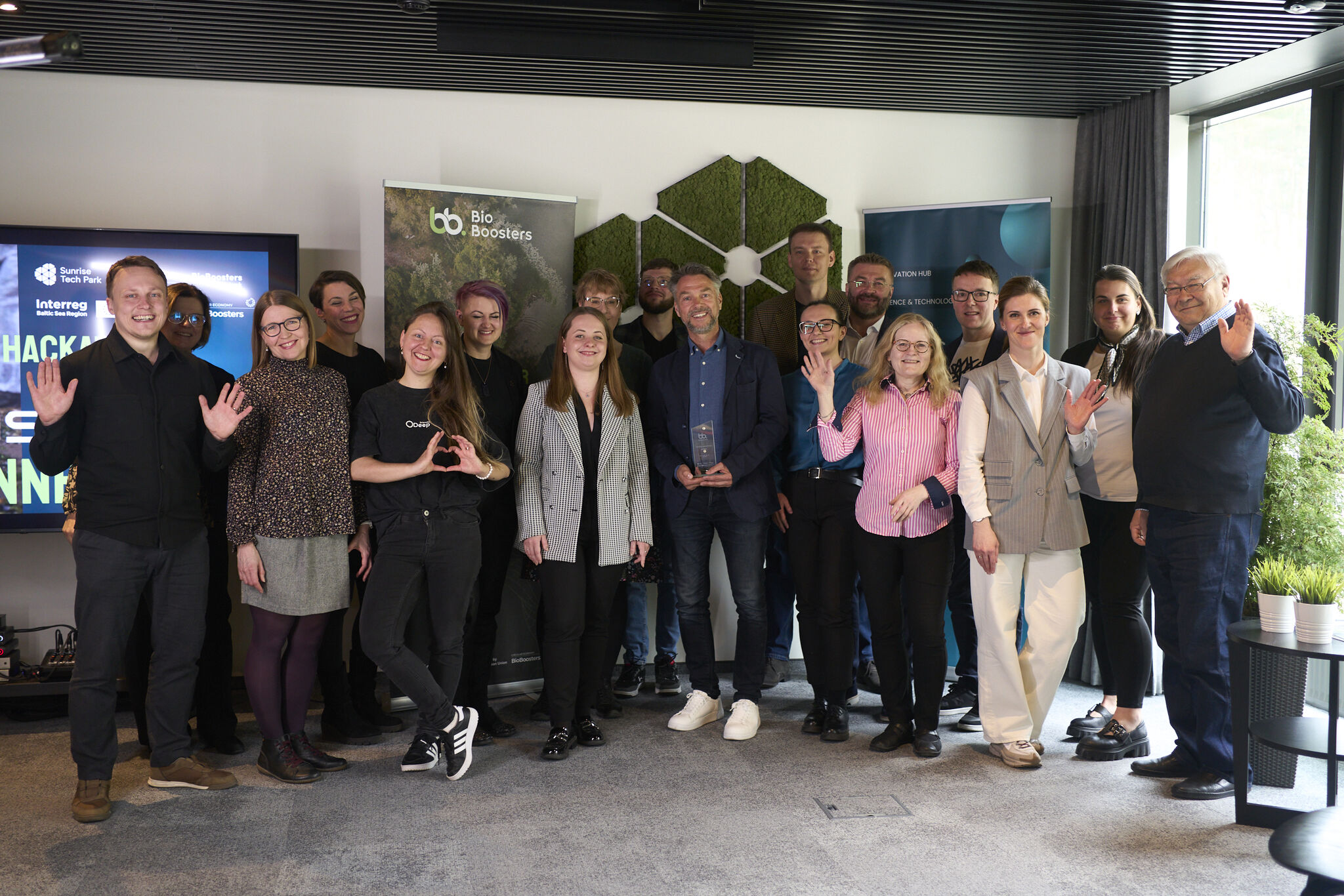
2025-05-07
Congratulations to the German company Sensatec GmbH, the winner Toksika hackathon, which was organized by the Sunrise Tech Park as part of the BioBoosters project. The project aims to accelerate the development of green innovations in the Baltic Sea region by promoting cooperation between companies, scientific institutions and start-ups.
During two intensive days, 6 international teams from Lithuania, Germany, Spain, Poland and Finland searched for innovative solutions on how to effectively clean up oil-contaminated soil — an important environmental problem highlighted by Cleantech Lithuania member Toksika.
This challenge is particularly acute across Europe. According to the European Environment Agency, about 2.8 million potentially contaminated areas are marked on the map. Many of them — especially in Germany, France, the United Kingdom, Italy and Eastern European countries such as Poland, the Czech Republic and Lithuania — are heavily affected by oil pollution. Most often, foci of such pollution are found in former military bases, ports, gas stations and near oil refining or storage facilities. The main pollutants are crude oil, diesel, kerosene and heavy fuel oils.
In Lithuania, this problem is also very acute. Since the 1990s, potentially contaminated sites — former military sites, landfills, oil storage sites, gas stations — have been actively inventoried and studied. According to the Lithuanian Geological Survey, 12,520 potentially contaminated sites were identified throughout the country in 2022, of which about 40% (about 5,000) are directly related to the use of petroleum products. Such territories occupy approximately 600-700 hectares.
The environmental and health risks posed by these contaminated areas are very high. Petroleum products damage soil quality, threaten water bodies and ecosystems. One of the promising solutions is biological soil treatment, using microorganisms to break down pollutants. However, this process is slow and the biggest challenge is to ensure the survival and efficiency of microorganisms during cleaning.
We are pleased that this hackathon sought precisely such advanced solutions that could be applied in real environments and promote a cleaner, safer future.
Thank you to all the teams, mentors and partners — events like this create real change towards a greener future!